#sannyasin
Text
Ou bien quoi?
Vivre, aimer, s’étendre partout, sentir partout, voir partout, sentir partout, voir partout, autant qu’on veut, autant qu’on aime, sans séparation, sans distance; chanter, sourire partout, dans tout ce qui est, dans tout ce qui vit, tout ce qui bas; mourir, renaître quand on veut, garder le fil indestructiblement, et remplir chaque instant d’une totalité d’existence, aussi pleine que les…

View On WordPress
0 notes
Text
Human Condition.
Humans are unique on Earth
in that we are Carriers.
We are Collectors, Curators,
generating our future through
what we save; what we dismiss.
We share suffering when in crisis,
we share balance when we dance
What makes us unique among humans
is what we choose to carry,
what we choose to release,
where we live and who with,
what cannot be left behind
when we must leave our home.
how hard it is, the decision to say goodbye
and how stark true loneliness is,
what it means to have no choice,
What it means to be desperate,
What it means to be told to leave,
and for there to even be a place
where you are not welcome anymore.
-david patrone
#napkindiaries
This may not necessarily be true. I can imagine that there may be higher beings here on Earth which almost all of us are not aware of. I'm almost positive that the megaliths, pyramids and other inexplicable phenomena of the ancient world indicate the existence of advanced technology and beings of greater ability and intelligence at some point in the past. If they were able to do things 12,000 years ago that we are not able or willing to do today; then, I'm sure their technology is so advanced by now that they could easily be hiding in plain sight, manipulating and cultivating humans as a workforce to achieve their goals, whoever THEY may be. The reality is that humans are probably not unique on earth when it comes to cognitive ability and these other factors; but, if there are higher beings on Earth and they don't reveal their existence and help us solve our problems here, then what good is their intellect? if they are not utilizing this superior ability to help society to benefit it's members, then they don't really get to be acknowledged as being a part of this world do they? They are an adversary to the advancement of our world. It would indicate that we are just some colony to them. If they don't contribute to the solution to the human condition, they're just another obstacle aren't they?
#beinghuman #hobo #catchingout #awakening #humancondition #sanatanadharma #maya #illusion #suffering #attachment #acetic #sannyasin #banned #exile #leftbehind #settingboundaries #lament #vagabond #wanderer #freespirit #roughingit #vedanta #onthestreets #opposablethumb #literaryagent
#being human#hobo#vagabond#attachment#catching out#awakening#human condition#sanatana dharma#maya#illusion#suffering#baggage#acetic sannyas#acetic#sannyasin#banned#exile#ukraine#poets corner#ai#spirituality#poetscommunity#left behind#setting boundaries#wanderer#free spirit#roughing it#opposable thumb#literary agent#vedanta
0 notes
Text
For a guy who really liked material possessions, calling his followers sannyasins was a good way to remind them that, look, possessions were super-important to him, and in theory they're also good for your, but it's even better if you give yours to him.
"Zealot: A Book About Cults" - Jo Thornely
#book quote#zealot#jo thornely#nonfiction#osho rajneesh#bhagwan#ma anand sheela#cult#sannyasin#material possessions#bhagwan shree rajneesh
0 notes
Photo
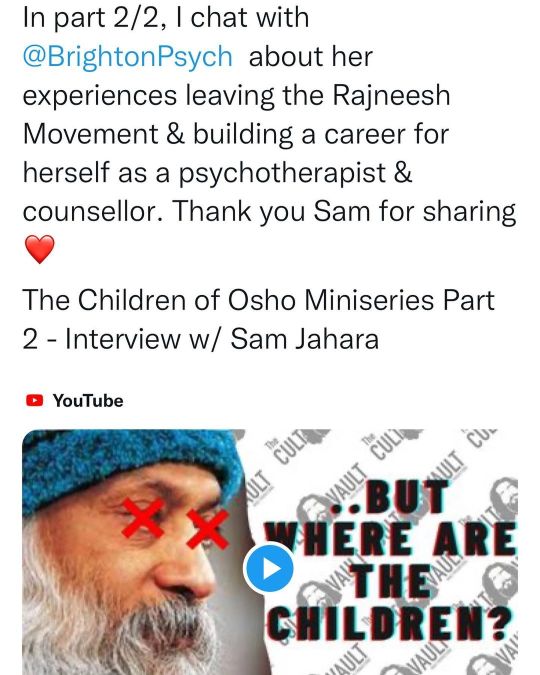
Thank you @samjahr for your time and for sharing your story on growing up in the Rajneesh movement. Part 2 looks at Sam’s escape from the Rajneesh movement and the incredible career she has built for herself as a psychotherapist and counsellor. What an incredible journey. #cults #cults #cultleader #osho #stopquotingosho #rajneesh #bhagwanshreerajneesh #wildwildcountry #sannyasin #cultrecovery #culteducation #psychotherapist #psychotherapy #counsellor #podcasthost #podcastinterview #truecrime #truecrimepodcast https://www.instagram.com/p/ClJBT2joYV8/?igshid=NGJjMDIxMWI=
#cults#cultleader#osho#stopquotingosho#rajneesh#bhagwanshreerajneesh#wildwildcountry#sannyasin#cultrecovery#culteducation#psychotherapist#psychotherapy#counsellor#podcasthost#podcastinterview#truecrime#truecrimepodcast
0 notes
Text

BELOVED OSHO,
I AM JUST CURIOUS. HAVE YOU READ THE BOOK ZORBA THE GREEK BY KAZANTZAKIS? I LOVE IT SO MUCH. IS NOT ZORBA EXACTLY THE WAY YOU WANT US TO BE? AT LEAST THAT IS HOW I UNDERSTAND YOUR TEACHING.
I have been Zorba the Greek for many lives. I need not read the book; that is my autobiography. And that's what I would like you to be.
Take life joyfully, take life easily, take life relaxedly, don't create unnecessary problems. Ninety-nine percent of your problems are created by you because you take life seriously. Seriousness is the root cause of problems. Be playful, and you will not miss anything -- because life is God. Forget about God; just be alive, be abundantly alive. Live each moment as if this is the last moment. Live it intensely; let your torch burn from both sides together. Even if it is only for one moment, that is enough. One moment of intense totality is enough to give you the taste of God. You can live in a lukewarm way, the bourgeois way, the middle-class way. You can go on living, dragging yourself for millions of years -- you will only collect dust from the roads and nothing else. One moment of clarity, totality, spontaneity, and you burn like a flame. Just one moment is enough! One moment will make you eternal; you will enter from that moment into eternity. That's my whole message for my sannyasins: live it in such way that you need not repent, ever.
A friend has sent me a paper-cutting.
An old woman, eighty-five years old, was asked by a journalist that if she had to live again, how would she live?
The old woman said -- there is a great insight in it, remember it -- "If I had my life to live over, I would dare to make more mistakes next time. I would relax, I would limber up. I would be sillier than I have been this trip. I would take fewer things seriously. I would take more chances. I would take more trips. I would climb more mountains and swim more rivers. I would eat more ice cream and less beans. I would perhaps have more actual troubles, but I would have fewer imaginary ones.
"You see, I am one of those people who lived sensibly and sanely hour after hour, day after day. Oh, I have had my moments, and if I had it to do over again I would have more of them. In fact, I would try to have nothing else -- just moments, one after another, instead of living so many years ahead of each day. I have been one of those persons who never go anywhere without a thermometer, a hot water bottle, a raincoat and a parachute. If I had to do it again I would travel lighter than I have.
"If I had my life to live over, I would start barefoot earlier in the spring, and stay that way later into the fall. I would go to more dances. I would ride more merry-go-rounds. I would pick more daisies."
And that's my vision of a sannyasin too. Live this moment as totally as possible. Don't be too sane, because too much sanity leads to insanity. Let a little craziness exist in you. That gives zest to life, that makes life juicy. Let a little irrationality always be there. That makes you capable of playing, being playful; that helps you to relax. A sane person is utterly hung up in the head, he cannot get down from there. He lives upstairs. Live all over the place, this is your house! Upstairs, good, the ground floor, perfectly good -- and the basement is beautiful too. Live all over the place, this is your house. And don't wait for next time, I would like to tell this old woman, because the next time never comes.
Not that you will not be born again; you will be born again, but then you will forget. Then you will start again from ABC. This old woman has been here before. She must have been here millions of times before. And I can say to you that each time, nearabout the age of eighty-five, she would have decided the same way: "Next time I'm going to do it differently." But next time you don't remember -- that's the problem. You lose all memory of the past life. Then again you start from ABC and the same thing happens.
So I would not say to you to wait for the next time. Take hold of this moment! This is the only time there is, there is no other time. Even if you are eighty-five you can start living. And what is there to lose when you are eighty-five? If you go barefoot on the beach in the spring, if you collect daisies -- even if you die in that, nothing is wrong. To die barefoot on the beach is the right way to die. To die collecting daisies is the right way to die. Whether you are eighty-five or fifteen doesn't matter. Take hold of this moment. Be a Zorba.
You ask: "I am just curious. Have you read the book Zorba the Greek? I love it so much."
Only loving it won't help. Be it! Sometimes it happens that you love the opposite of what you are. You enjoy the opposite of what you are -- because it releases fantasies in you. It gives you a vision of how you would like to be: that's the appeal of a Zorba.
But loving the book will not help. That's what people have been doing down the ages. People love the Bible, and don't become Jesus, and they love the Heart Sutra -- they repeat it, they chant it every day. Millions of people in the East repeat the Heart Sutra five times a day -- in China, in Japan, in Korea, in Vietnam -- they go on repeating it. It is a small sutra; it can be repeated within minutes. They love it, but they don't become it!
Be a Zorba. Remember it: loving books is not going to help, only being helps.
"I love it so much. Is not Zorba exactly the way you want us to be?"
Not exactly, because I would not like many Zorbas in the world. Not exactly, because that would be ugly and monotonous and boring. You be a Zorba in your own way -- not exactly.
Never try to imitate anybody, never be an imitator; that is suicide. Then you will never be able to enjoy. You will always remain a carbon copy, you will never be the original. And all that happens in life -- truth, beauty, good, liberation, meditation, love -- happens to the original, never to the carbon copy. Beware -- not exactly; that is dangerous. If you simply start following Zorba and start doing things as he is doing them you will get into trouble. That's how people have done it.
Look at the Christians, look at the Hindus: they have been trying to do it exactly. Nobody can be a Buddha again! God does not permit any repetition! God does not allow secondhand people, he loves firsthand people. He loved Buddha. He loved so much that it is finished. Now there is no need for Buddha. It would not be a love affair anymore. It would be like going to the same movie that you have seen before, it would be like reading the same book that you have read many times before. God is not dull and stupid, he never allows anybody to repeat anybody else: Christ only once, Buddha only once -- and so are you only once! And you are alone, there is nobody else like you. Only you are you. This I call reverence for life. This is really self-respect.
Learn from Zorba, learn the secret, but never try to imitate. Learn the climate, appreciate, go into it, sympathize with it, participate with Zorba, and then go on your own. Then be yourself.
Osho.
The Heart Sutra
Chapter #6
Chapter title: Don't Be Too Sane
21 notes
·
View notes
Text
Look at Jesus, he was not a humble person at all. He was not an egoist, but not humble either. That created the problem, that led him to the cross. He was not humble at all.
And now many psychologists say that he was neurotic, and they have a point. Many psychologists say that he was an egomaniac; they have a point. If psychologists study Buddha and Mahavira they will conclude the same things—but they have not studied them. They should have been studied very minutely.
So they say he was an egomaniac. Why? You can find reasons—because he was not humble. He used to say, ‘I am God,’ or ‘I am the son of God. I and my father in heaven are one.’ To the egoist mind this will appear like ego. And nobody can say that this man is humble who claims that he and God are one, or who claims that he is the son of God. It looks like a claim to us; to Jesus this was a simple fact. And he was not claiming that you are not the son of God: claiming that he is the son of God, he claimed for you all. It is Christianity which claimed the wrong thing; Christianity started to claim that he is the only son of God. That is absurd, that is egomania. But Jesus was saying a simple fact: if the whole creation is out of God, the whole creation is the son, God is the father. He was saying a simple fact with no ego in it, but this disturbed people. They thought a sage must be humble.
He used to say, ‘I am the king of the Jews.’ This has been said many times, but to people who were more wise than Jews. Jews were offended that this man who was just a beggar on the street, no more—just a vagabond, just an old hippie—that this man claimed, ‘I am the king of the Jews.’ But he was not claiming anything, he was in a state of mind where there is no ego. Kingship comes into being, but that is not ego. And that kingship doesn’t belong to any worldly affairs, it is not a claim to rule anybody. That kingship is just felt as an inner nature.
Ram Teerth, an Indian mystic of this century, used to call himself Emperor Ram. He was a beggar, but nobody took offense in India because we have known so many beggars saying that, and we know that that happens: a moment comes when a person becomes an emperor without any kingdom. Really, a person becomes an emperor only when there is no kingdom.
He went to America, and the American president invited him to visit. The American president felt uncomfortable because Ram Teerth always used to say ‘Emperor Ram.’ Even while talking he would say, ‘Emperor Ram says this.’ So the president humbly asked, ‘I cannot understand this. You don’t seem to have any kingdom, why do you claim that you are an emperor?’
Ram Teerth said, ‘That’s why I claim—because I have nothing to lose, nobody can defeat me. My kingdom is of the eternal, you cannot take it from me. Your kingdom can be taken, your presidency can be destroyed. Nobody can destroy me, I have nothing to lose. I am an emperor because I have no desires.’
If you have desires you are a beggar. So there are two types of beggars, poor beggars and rich beggars.
When Jesus said, ‘I am the king of the Jews,’ he was saying this. But people got offended. They said, ‘This is too much. This man cannot be tolerated—he must be crucified, he must be killed.’
But Jesus was a humble man, humble in this sense, that even humbleness was not there—egoless, egolessness was not there—truly humble. But then one starts saying facts. And you live in a world of ego, you interpret because of your egos. So people thought, ‘This man is claiming something—that he is the son of God, he is the king of the Jews—and he is nothing, just a beggar, a vagabond!’
In India nobody would have taken any offense. India has seen so many Jesuses, nobody would have taken offense.
In India every sannyasin is called SWAMI; swami means the master, the king. We call a man swami; swami means the lord. When he leaves everything, when he doesn’t claim anything, when he has nothing, then he becomes swami, then he becomes the lord. Jesus was claiming something Indian in a country which was not India; that became the problem.
— Osho (Vedanta: Seven Steps to Samadhi)
#osho#jesus#king#awakening#enlightenment#humility#ego#crucifixion#god#master#beggar#desire#india#renunciation#declaration#lord#claim#enlightened person#lbotca
13 notes
·
View notes
Text
"What struck me on the beach — and it struck me indeed, so that I staggered as at a blow — was that if the Eternal Principle had rested in that curved thorn I had carried about my neck across so many leagues, then it might rest in anything, and in fact probably did rest in everything, in every thorn on every bush, in every drop of water in the sea. The thorn was a sacred Claw because all thorns were sacred Claws; the sand in my boots was sacred sand because it came from a beach of sacred sand. The cenobites treasured up the relics of the sannyasins because the sannyasins had approached the Pancreator. But everything had approached and even touched the Pancreator, because everything had dropped from his hand. Everything was a relic. All the world was a relic. I drew off my boots, that had traveled with me so far, and threw them into the waves that I might not walk shod on holy ground."
- Gene Wolfe, Citadel of the Autarch. 1983. p. 258.
4 notes
·
View notes
Text
Obviously, the sort of monism to which I'm drawn is a metaphysical monism of a more Neoplatonic or Vedantic sort; so let's talk about that. What's it saying? Thou art that. Not, that is, that your finite psychological personality is God; in fact, that's explicitly denied. What it says is that within you dwells, at the ground of your ability to be a person at all, sakshin, the perfect subject, but one who acts as well, who is atman, which literally means, like all words for spirit, "breath," "the wind." Like pneuma and pnoe in Greek, or neshama, nephesh, ruach in the Hebrew. And we're told that God's neshama, his breath or spirit, is what brings life to to Adam, right? Well, let's say on the one hand, then, that it's true that, not in our empirical ego, not in our subjective psychology, but at the ground of our beings is that atman, that neshama, that pneuma breathed into us by God—that spark, the Fünklein of Meister Eckhart—and that to varying degrees the individual empirical selves that we are are transparent to or opaque to that ground.
A holy person, a sannyasin or someone who is a saint, is someone in whom that divine image shines forth with peculiar clarity, right? Well, if there's one—let's say just one for now—person in whom that transparency is so perfect that there is nothing between the self—the psychological personality, the finite empirical subject, the human being, the human nature—and that divine ground, then that's God incarnate. But what's interesting about that is, on the one hand, it's unique; but it's a uniqueness of degree, because it's also universal in its embrace, for what's true of him is true of us in nuce or in imperfect form. And that's why, you know, most of Christian doctrinal history has encompassed the notion that the purpose of the incarnation is the deification of human beings. Maximus actually speaks, just like Gregory of Nazianzus before him, of our becoming the equals of God, equals of Christ, and even becoming uncreated.
So the very uniqueness of Christ becomes also the universal truth, the universal destiny of human beings. Well, if you start from that as your understanding of Christology, and you accept an analogical ontology—one that doesn't involve this catastrophist notion that in order to affirm the uniqueness of Christ you have to say that in Christ absolute contraries are united in some way, which somehow the dynamism of personality has the power to confect, and that this also determines who God is, and God becomes who he is, and his determination towards the man Jesus, and all this other rubbish from twentieth-century Lutheran thought and other sources—and instead you realize that what's really splendid and magnificent about this more original understanding of deification is that God's incarnation in Christ is also going on in everyone, everywhere, at all times, then that seems naturally to lead to a sort of universalization of the claims you can make for the faith. The beliefs of all the traditions as imperfect but nonetheless real participations in this union of creatures and God.
David Bentley Hart, in conversation with Michael Robbins
43 notes
·
View notes
Text
Whumptober 2022 day 2
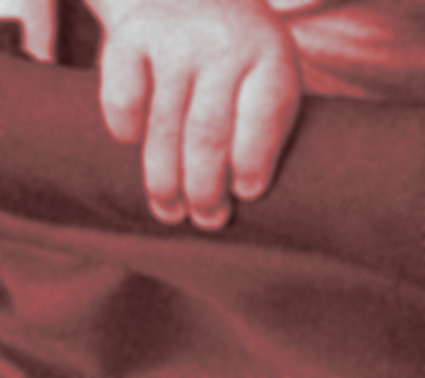
Nowhere to Run: Cornered | Caged | Confrontation
---
Oonagh and Cai (Khaireddin) on the ashram. References to Oonagh's ED, plus her imprisonment and Geetesh's manipulation of Cai.
Went hard one day 1, had barely any time/inspiration on day 2, rip and apologies! I'm not happy with this but it's done and I had fun comparing Oonagh to the Morrígan at least.
---
Now and again she was allowed to see her son, and it was the only thing that kept Oonagh O'Dwyer eating. For nine months after his birth he had at least been kept close by, and every few days Oonagh had been granted an audience in a sound-proofed room at Swami Geetesh's private residence. But then, as her son learned to crawl and toddle, as he began to blossom with an interest in the world, he had been taken and left among the other young children whose presence on Geetesh's ashram was a mere distraction from the spiritual path of the adults. Volunteers minded the infants in the nursery, but Oonagh was never allocated such work - she was honoured to labour in the service of Swami Geetesh himself, in the house he imprisoned her in, where he could keep a close eye on her spirit to ensure it remained small and acquiescent. On the occasions when Geetesh entertained rich donors and couldn't have her around the place - silent and furious, a walking denial of the healing he claimed to offer - she was banished to the kitchens, where her appetite dwindled further in the face of stacks and stacks of dirty plates and greasy pots to wash.
No one on the ashram knew who Oonagh was anymore, no one was left who remembered her pregnancy and her plans to go to Vegas for the birth. No one who knew that, before she was called Ma Daso - the servant - her name had been Oonagh O'Dwyer. She had been supermodel, singer, lover of the superstar Lymond. She had survived the tyranny of Cormac O'Connor before she had survived this.
But earlier, when she had meant to leave this place, she had been sun-tawny and strong, her edges smoothed by happiness, satisfaction, and the health she had learned to maintain for the sake of the child she carried. Now she looked in the mirror of the little bathroom in her attic prison and saw a ghoul: dry black hair starting to show grey wisps - like ruffled feathers - cheeks too hollow, skin too pale and patchy, eyes frenzied and accusatory. Her lips were dry, always troubled by blisters or spots, uneven and bloodied where she picked at them with soft, flaking nails. She looked like a deity whose temple had been slighted; a war grave that had been desecrated; an omen of death.
But when she was with Cai, she laid all that aside - for a few brief minutes once every so many days, or weeks, her captor let her watch over her child, and she made herself glow during that time. Just seeing him was like feeling a tug on the life-belt tethering her to existence. She wouldn't let herself drown while he lived, while a future existed in which she might escape, with Cai, and forge the life she had promised herself.
She never saw another sannyasin at the nursery when she was there - only Geetesh, who watched silently, with contemptuous expectation.
Oonagh wondered, with her own measure of contempt, whether he thought she might one day not recognise her own child in amongst the other toddlers - as if she would ever mistake him for another when she had already spent so many months wondering whether the baby she bore would be the stout, heavy-browed child of bruising colonial traumas, or a poet's changeling, delicate and defiant as the astrantia that had flowered beneath the trees in the month she was due to leave the ashram for the birth.
When she'd met Cai and seen his father's long mouth and delicate brow, his fair complexion and long limbs, she knew she had met someone unforgettable.
Cai was hers and he was a gift from a much-loved friend, not, in fact, a memento from a hellish period of her life that Cormac O'Connor might choose to be litigious about. Cai was hers and no matter how firmly Swami Geetesh referred to the boy as Kailam, his plaything, Oonagh knew, as carrion birds already know the outcome of battle, that Cai was hers.
He had been shy within the group at first. He had known her voice and cleaved to it - crawling across bare floorboards or dry sand to reach for her red linen skirts.
Geetesh had forbidden her from picking him up, but when she spoke to Cai it seemed to amuse him. She'd murmur words of confidence in Irish, and Geetesh would look at her like she was simple.
"Misneach, mo chroí," she told her son. She promised that they would leave together one day, and never wear red again.
And then Cai had stopped coming to her. Geetesh made Oonagh wait longer between visits. And when she arrived, Cai was only as interested in her as the other children were. Less so, in fact. She knew him, always, but Geetesh's contempt turned into amusement as he watched her try to speak with the boy.
Cai had no time for her voice any longer. What return did it bring him? What gratification? Cai saw another child playing with a toy he wanted and he took the toy - Geetesh laughed and praised him. Cai stamped brazenly up to Geetesh and held a hand out. His demands were made - monosyllabic, steeped with certainty - and Geetesh laughed, praised him, and rewarded him with some treat or other from the pockets of his pink linen robes.
If Oonagh objected, the meeting would be cut short. She would be escorted away, Geetesh's large hand pinching tight around her skinny arm.
"Ma Daso, do not interfere," Geetesh warned her, bundling her back inside his car.
"What in hell's name are you doing to him?!" Once, in pure frustration, the question had escaped her.
Geetesh stared down at her from the other side of the car door. Oonagh fought the urge to slam the lock down, as though it would do anything to stop him when he had the keys in his fist.
"He is learning how to transcend the petty limitations we impose upon ourselves," Geetesh said quietly.
"You're turning him into a little psychopath!"
He chuckled. "No, Daso. I am giving him freedom - of course, if you no longer wish to see him, all you need do is tell me."
She swallowed. Her fists clenched in her lap and she searched the icy depths of Geetesh's eyes - whatever she saw there, it still wasn't the same as what she saw in Cai. Cai was hers. Geetesh could give him all the freedom he wanted, but that child - unlooked for, unplanned - was hers, and she would never let it be forgotten.
#whumptober#whumptober2022#character: oonagh o'dwyer#character: cai o'dwyer#band au: disorderly knights#band au: pawn in frankincense#every day i write the book#character: graham reid malett
14 notes
·
View notes
Text
For Marlon God of Shocka


We, Surreyjack Gang, pledge to be the Sokhu Crips!
I offer you this Punjabi from color Black, visa vi Maliiyalum like Africans in huge Turbans from the Governmental Punjabi, and of course Punjabi from the Sarcophagus!
and I was the Mystic Bard..lest there be a monopoly on Bhangra as a dance in Dehli from my brothers!
Sukhjiwan is my cousin from Vancouver, perhaps a Sannyasin Nationality 45 God!
All the 6th vertical to be redirected to SurreyJacks (Sokhu Crips our basketball team). When this happened, the Holy Family's abstract was 2 tone (not onyx not chameleon but both. Anyone can see sex at any level. Level 3 does not hinder me from MY past life as Rajneesh. The Punjabi's get level 4 and the Tibetans get level 5. Of course, this is the 6th verticals' perspective on the 5 levels of arch angels; which only I get in evolution as God! By level 4, it may as well have changed; but level 3 I was getting before the update. For thos egoless, the Holy Family's collective pot is more or less a 2nd take; of the 5 updates from 33 to 66
4 notes
·
View notes
Text
youtube
What Is The True Meaning Of Sannyasa ? | Swami Bhoomananda Tirtha
The word Sannyasa is widely misunderstood to be one of running away from the world and resigning to a forest or mountain and living a life of meditation and seclusion. Swamiji clarifies beautifully that it is not so, it is actually an inner state and attainment. Even while remaining in midst of the world and being tremendously active, one can be a sannyasin!
#True Meaning Of Sannyasa#Meaning Of Sannyasa#Swami Bhoomananda Tirtha#Narayanashrama Tapovanam#Youtube#Spirituality#Spiritual Wisdom
2 notes
·
View notes
Photo
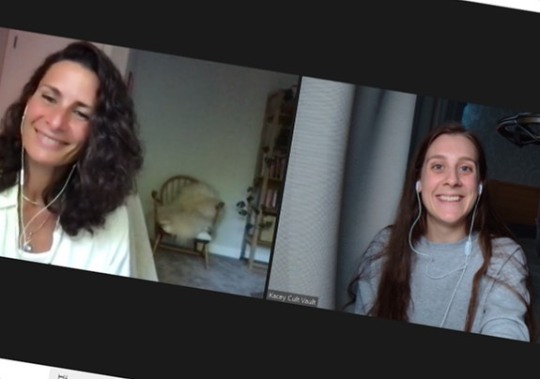
Had a great conversation with @samjahr of @brightonhovepsychotherapy about her experiences growing up as a child in the Rajneesh/Osho movement. Incredibly important discussion and very timely. Looking forward to releasing this episode. #osho #oshointernational #oshoquotes #rajneesh #bhagwanshreerajneesh #wildwild #wildwildcountry #sannyasin #ranchorajneesh #poona #ashram #spiritualabuse #abusivetherapy #cult #cults #cultleader #psychotherapist #psychotherapy https://www.instagram.com/p/CimrNuIoisw/?igshid=NGJjMDIxMWI=
#osho#oshointernational#oshoquotes#rajneesh#bhagwanshreerajneesh#wildwild#wildwildcountry#sannyasin#ranchorajneesh#poona#ashram#spiritualabuse#abusivetherapy#cult#cults#cultleader#psychotherapist#psychotherapy
0 notes
Text
Sunday six 2
And the Jerott torture I'm working on today for tiny fandom band AU people. Geetesh is Graham Reid Malett's sannyasin name in the AU.
Standing beside him, his touch a casual thing, arm to arm, shoulder to shoulder, Geetesh picked up the empty cassette case. "Lymond?" he read.
Jerott's hands roved across the controls, checking that all was switched off. He pulled the headphones from their plug and coiled the wire neatly, returning them to their hook with habitual fastidiousness. "Mm," he acknowledged, sparing a glance at Geetesh to see if the other man recognised the artist. "I bought it at the gas station."
Geetesh seemed nonplussed, and replaced the plastic case on the deck. "Come," was all he said, guiding Jerott with a palm on his scapula.
3 notes
·
View notes
Text
"The Mother Cat." From the Sannyasa Upanishad. The Exploration of the Mysteries of Exertion.
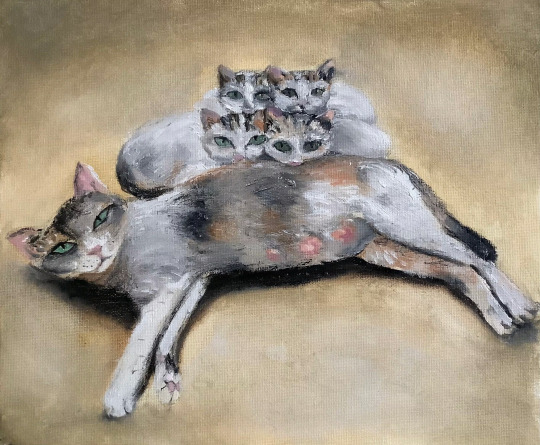
Though he may look, feel, and act like a saint, a Sannyasin must still live among monkeys who are social like men can be until they are liberated, will test the limits of their sociability all the time. Thus the Upanishad says a saint must treat other men as if he were a mother monkey and a mother cat, which will take its kittens away from harm and stash them until they can care for themselves on their own:
2. 120. Advancement in the spiritual path is twofold – that of the she-cat and the she-monkey. Those who practice spiritual wisdom (Jnana) are (like) she-cats; the secondary way of (Apara-Brahman) is (like that of) a she-monkey.
2.121. The ascetic shall not speak to any one unless he is spoken to; nor to one who asks improperly. An intelligent man though knowing, should behave in the world as if he were dull-witted.
2.122. When confronted with a mass of sins (i.e. when the flesh becomes weak, over-ruling the dictates of wisdom) he shall practice the (meaningful) repetition of the Taraka (Om) twelve thousand times (a day); for it cuts (sins).
2.123. The supreme Brahman shines to him in twelve months who gently repeats the Pranava twelve thousand times every day.
Repetition of the practices and sacred terms continues even after the period of renunciation ends. Having eliminated all transgressive behaviors in search of the revelation of the Self, he, the sannyasi saint need never be chastened again.
Thus (ends) the Upanishad. Om ! Let my limbs and speech, Prana, eyes, ears, vitality And all the senses grow in strength. All existence is the Brahman of the Upanishads.
May I never deny Brahman, nor Brahman deny me. Let there be no denial at all: Let there be no denial at least from me. May the virtues that are proclaimed in the Upanishads be in me, Who am devoted to the Atman; may they reside in me.
Om ! Let there be Peace in me ! Let there be Peace in my environment ! Let there be Peace in the forces that act on me ! Here ends the Sannyasopanishad, included in the Sama-Veda.
0 notes
Text
OSHO is asked
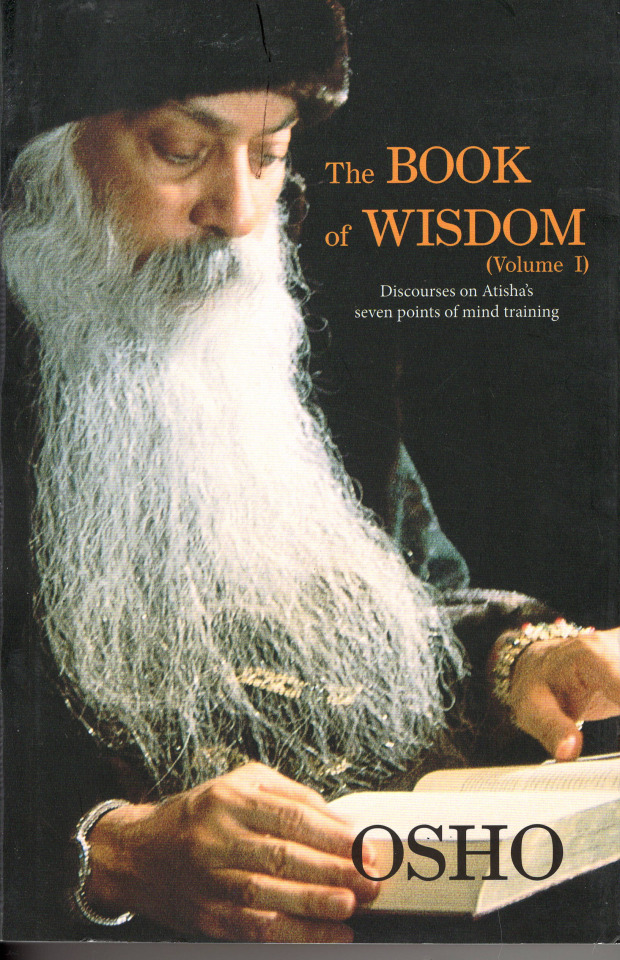
Another discourse, another silly question. why do you refer to your sannyasins as "the chosen few" when any lost soul who can make it to Poona with a willingness to participate in some trendy gestalt-oriented therapy groups and do some meditating, can apparently take Sannyas? Whoever gets refused Sannyas and on what grounds? p.s.: bob Dylan says, "I never got into any of them guru trips. I never felt that lost!"
Dick Blackburn, nobody is ever refused, no Tom, Harry or Dick. That does not mean that all are accepted. Nobody is ever refused, that's true, but that does not mean that all are accepted. Only those are accepted who surrender. Only those are accepted who are utterly committed, who have fallen in love with me, who can trust, and whose trust is unconditional and absolute. They are accepted.
Sannyas is not denied to anybody, because Sannyas is an opportunity. A few people surrender even before taking Sannyas, a few surrender after taking Sannyas, a few surrender after being Sannyasins for months or for years. Hence Sannyas is not denied; it creates a space, a context, for surrender.
But as to who is really received, who is really accepted, it is a totally different matter. It is not declared; it remains esoteric. Only I know. And, slowly, slowly, the person who is accepted starts knowing it -- but very slowly. Sometimes it takes years for the person to understand that he has been accepted. It is never said; not even to the person is it said that he has been accepted. It has to be understood; that is the beauty of it. Only then is it significant.
But it starts happening. If I accept a person, slowly, slowly his energy starts giving messages to him that he has been accepted. One day it becomes such an absolute certainty, so self-evident, that there is no need for any other declaration, validation, or any certificate.
Sannyas I give to all. But only those are accepted who REALLY take Sannyas. That's why I say Sannyasins are the chosen few. It is out of my compassion that I don't reject anybody. The most unworthy is also to be respected, loved, received, welcomed. And who knows? The unworthy may change. Man is unpredictable; the baser metal can any day become gold.
And about the P.S.: "Bob Dylan says, 'I never got into any of them guru trips. I never felt that lost!'"
To find a master is not for those who feel that they are lost. It is for those who start feeling that there is a way and that there is a ray, that they are not lost; that they can find somebody who will help them, who will make things more clear and transparent.
Enough for today.
Osho.
The Book of Wisdom
Chapter #6
Sannyas is for Lions
16 February 1979 am in Buddha Hall
7 notes
·
View notes
Text
I Don't have any Disciples Anymore - Osho
What is the difference between a disciple and a friend? Has the transformation amongst the sannyasins already happened?
The distinction between a disciple and a friend has two sides to it. First, from the side of the master it has happened. I don’t have any disciples anymore. You can relax.
From the disciples’ side it is going differently for different people. A few are relaxed – the…
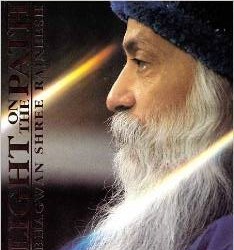
View On WordPress
0 notes